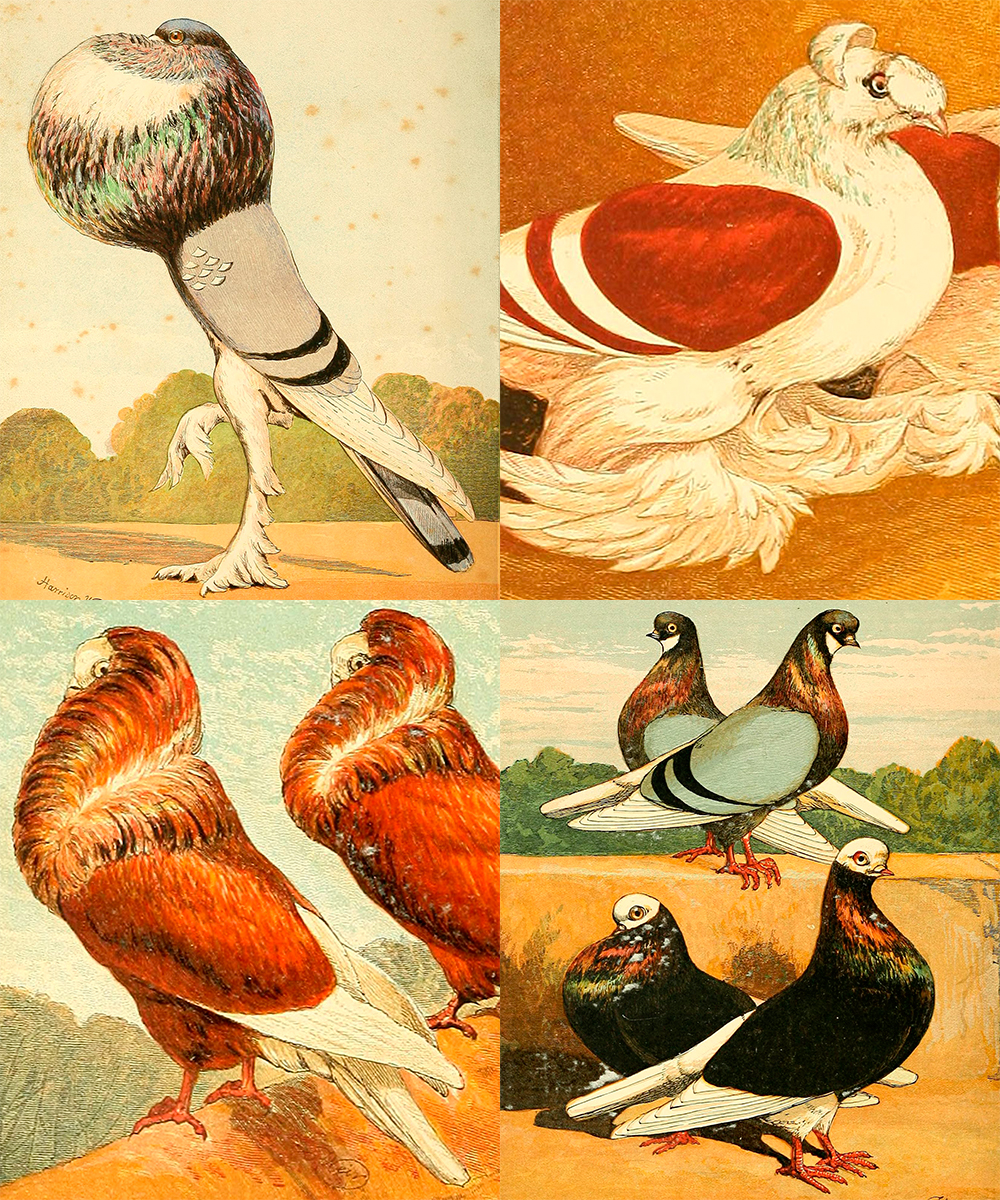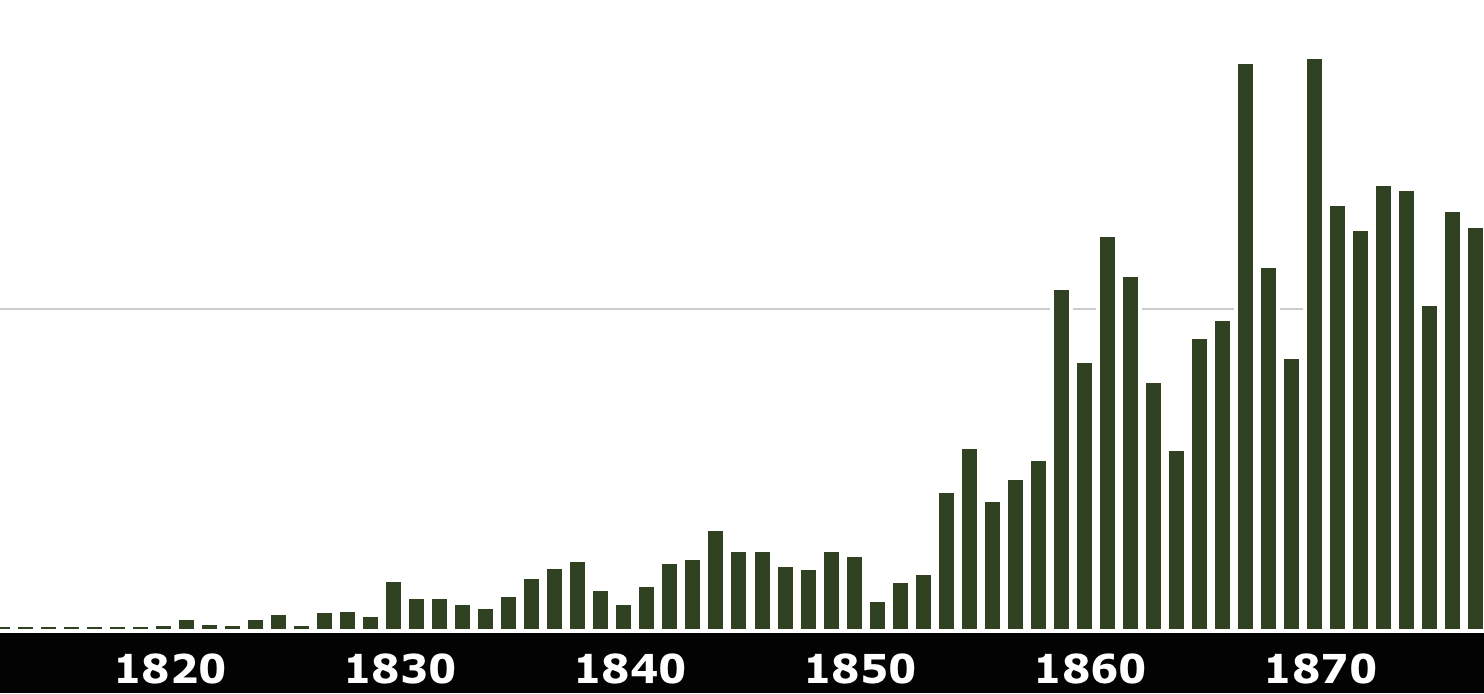'Hypotheses may often be of service to science, when they involve a certain portion of incompleteness, and even of error.' Under this point of view I venture to advance the hypothesis of Pangenesis
(Charles Darwin, Variation, vol. 2, p. 357).
It was crucial to Darwin's theories of species change that naturally occurring variations could be inherited. But at the time when he wrote Origin, he had no explanation for how inheritance worked - it was just obvious that it did.
Darwin's attempt to describe how heredity might work, his 'provisional hypothesis of Pangenesis', was published in 1868 in his book, Variation of animals and plants under domestication, and revised for the second edition in 1875 (2d ed. 2: 349-99). 'The whole subject of inheritance is wonderful' Darwin wrote,'When a new character arises, whatever its nature may be, it generally tends to be inherited, at least in a temporary and sometimes in a most persistent manner. . . . the real subject of surprise is . . . not that a character should be inherited, but that any should ever fail to be inherited.' Pangenesis was an attempt 'to show the means by which characters of all kinds are transmitted from generation to generation' (Variation, vol. 2, p. 2). He postulated that heredity occurred through 'gemmules', which he conceived as minute granules shed by the different parts of an organism and dispersed throughout its system. These gemmules, he suggested, were able, whether passed on through sexual or asexual transmission, to give rise to new individuals by developing into body parts like those from which they were orginally derived. They could also lie dormant 'for a thousand or ten-thousand generations' before reappearing; it was bewildering, he wrote, to contemplate 'the host of characters written in invisible ink on the germ' (to J. D. Hooker, 26 [March 1863]).
Years before he published, Darwin sent a draft manuscript on Pangenesis to a number of scientific friends for comment. They were not enthusiastic. Thomas Henry Huxley was worried that its speculative nature would give Darwin's critics ammunition, but didn't want to be responsible for preventing publication:
Somebody rummaging among your papers half a century hence will find Pangenesis & say "See this wonderful anticipation of our modern Theories-and that stupid ass, Huxley, prevented his publishing them" . . . I am not going to be made a horrid example of in that way.
'Your last note' Darwin replied, 'made us all laugh.- The future rummager of my papers will I fear, make widely opposite remarks.' (to T. H. Huxley, [17 July 1865]). He was forced to confess in a letter to Hooker, that it was indeed 'abominably wildly, horridly speculative'.
Darwin never completely gave up on Pangenesis, his 'great god Pan'. He defended it to Joseph Hooker, despite the doubts of their other friends:
I fear Pangenesis is still-born. Bates says he has read it twice & is not sure that he understands it. H. Spencer says the view is quite different from his (& this a great relief to me, as I feared to be accused of plagiarism, but utterly failed to be sure what he meant, so thought it safest to give my view as almost same as his) & he says he is not sure he understands it. Sir J. Lubbock says he shall wait, before he expresses his opinion. . . Old Sir H. Holland says he has read it twice & thinks it very tough, but believes that sooner or later "some view akin to it" will be accepted.
You will think me very self-sufficient, when I declare that I feel sure if Pangenesis is now still born it will thank God at some future time reappear, begotten by some other Father, & christened by some other name.
And took comfort in the support he received from Alfred Russel Wallace:
I can hardly tell you how much I admire it. It is a positive comfort to me to have any feasible explanation of a difficulty that has always been haunting me,-and I shall never be able to give it up till a better one supplies its place,-and that I think hardly possible.
Darwin's correspondence as he developed and published the hypothesis, gives a greater understanding not only of his ideas, but of the general discussion of heredity in nineteenth-century science and medicine.




